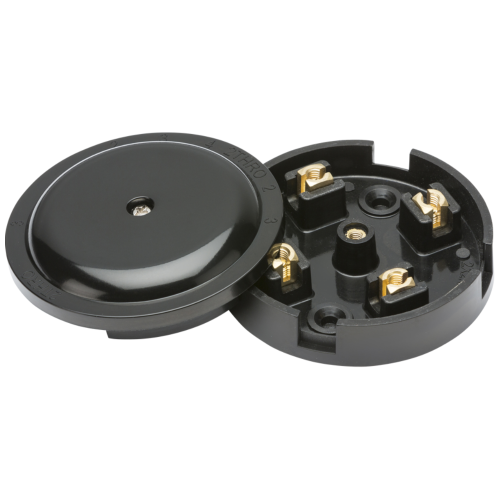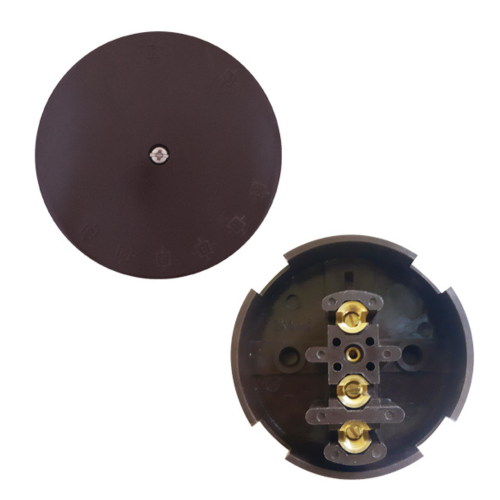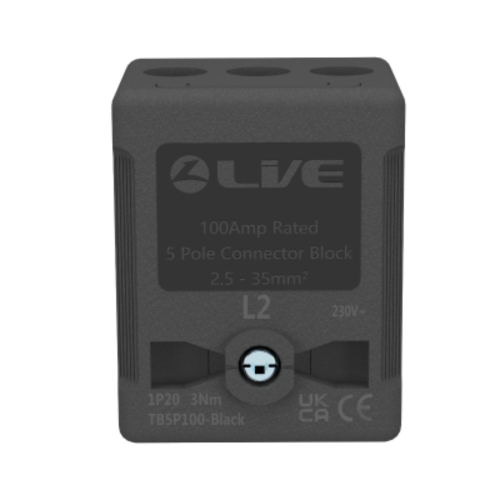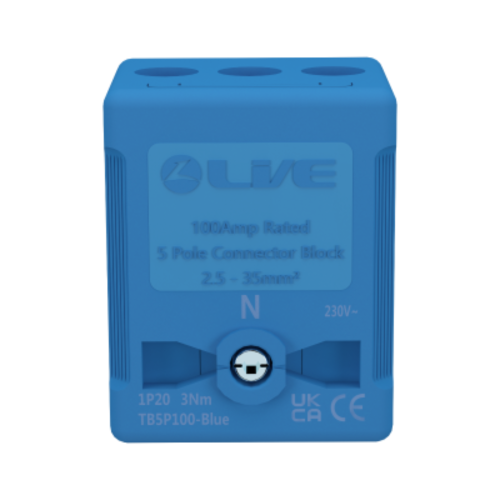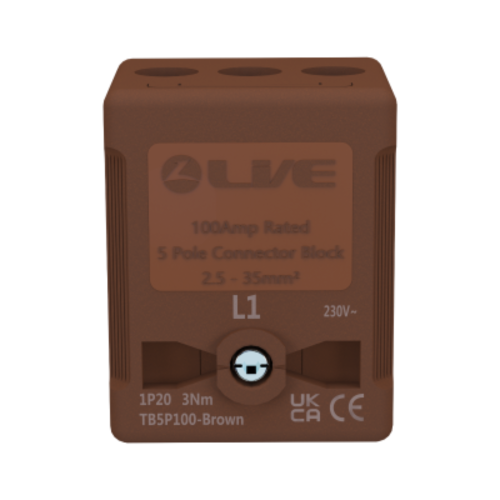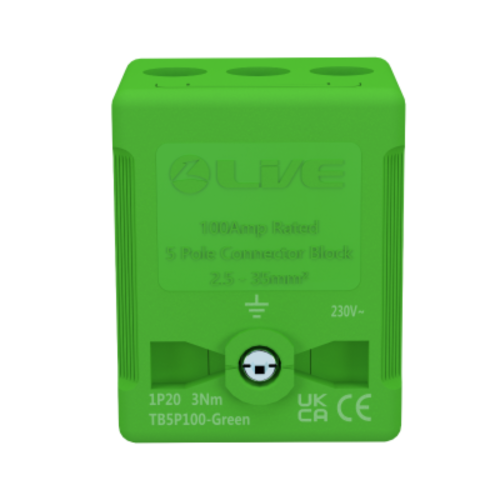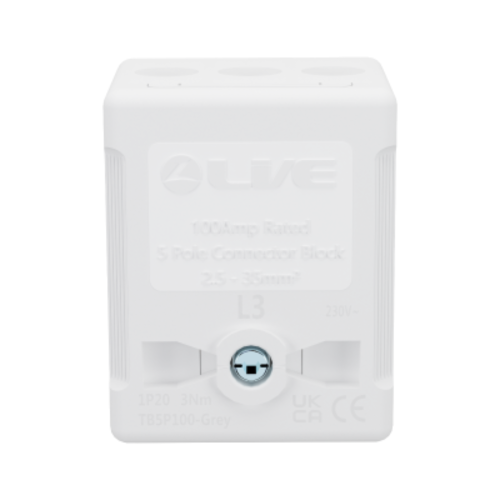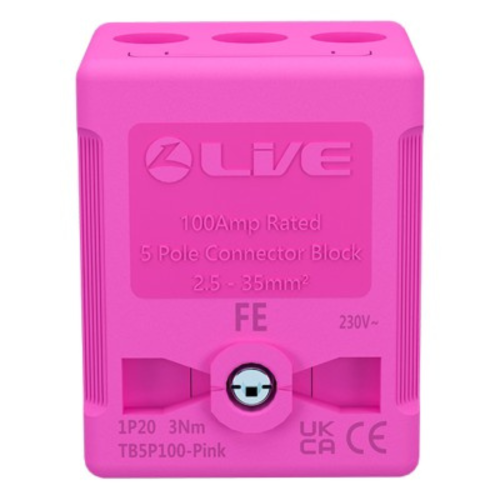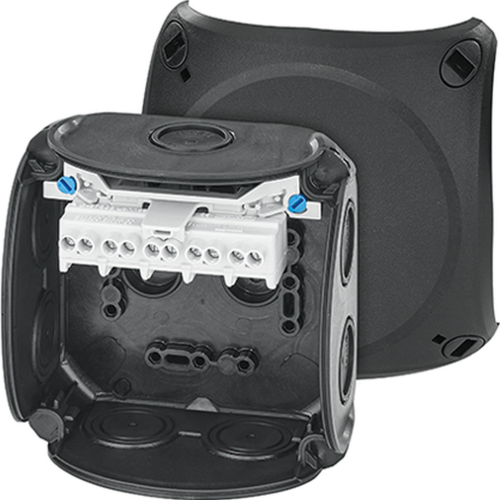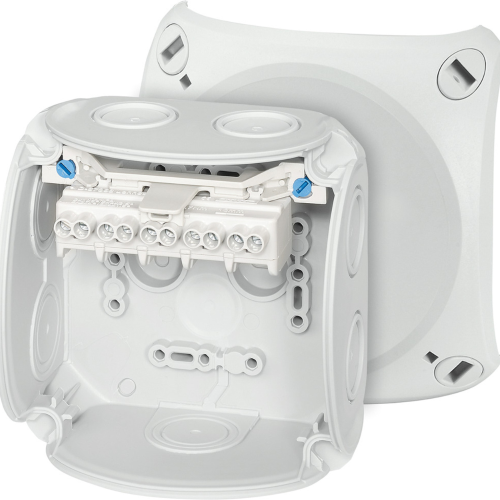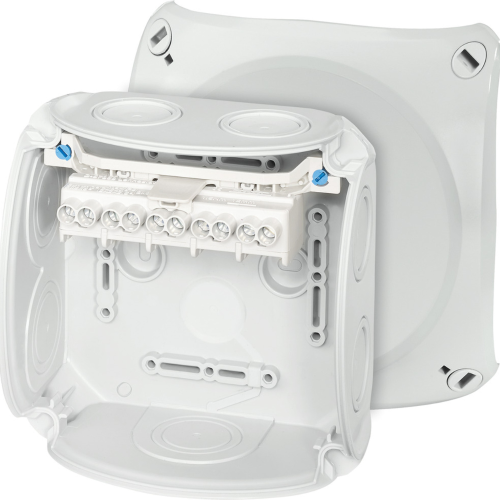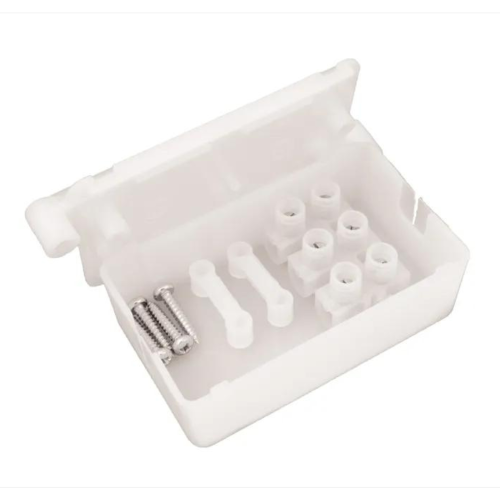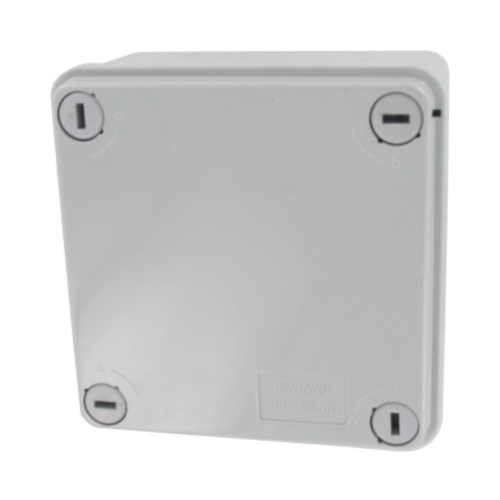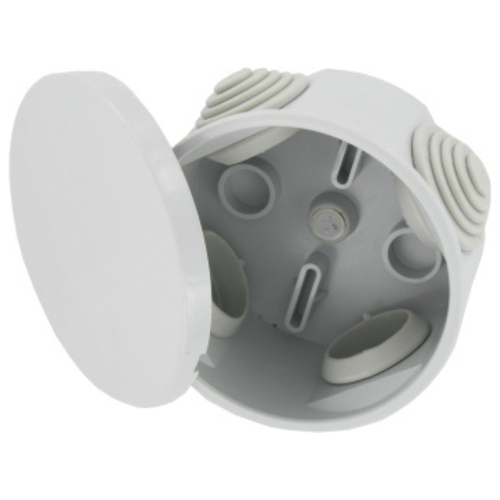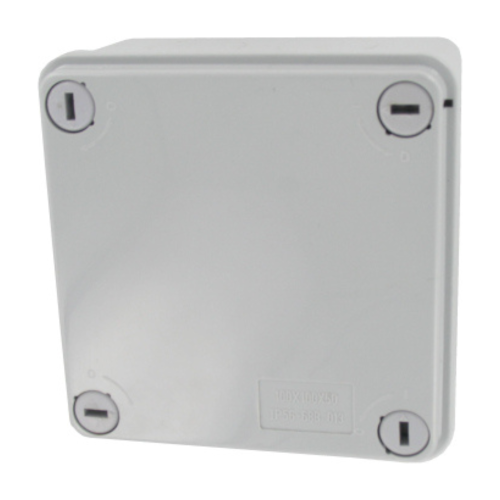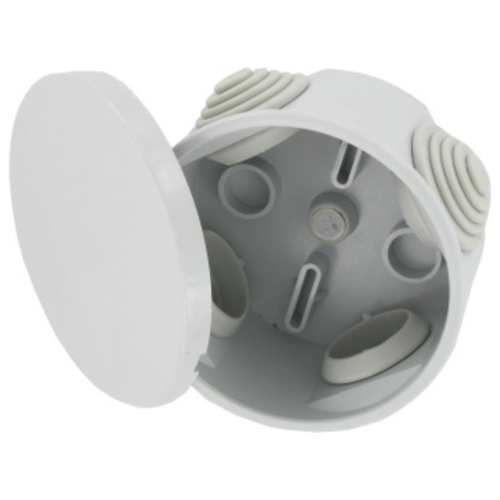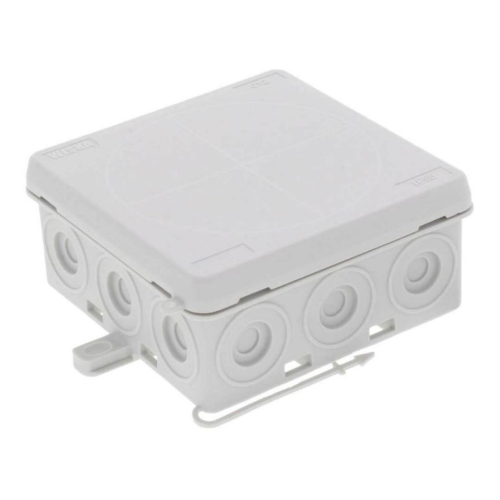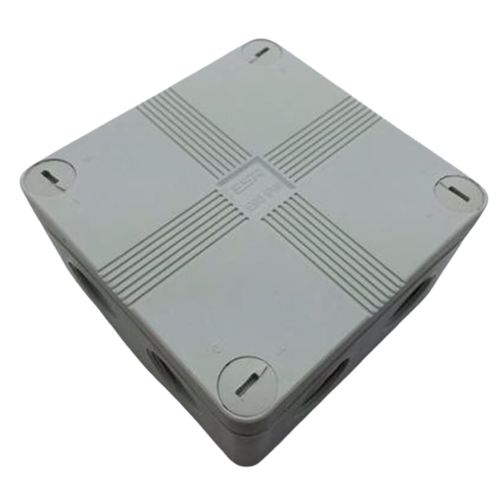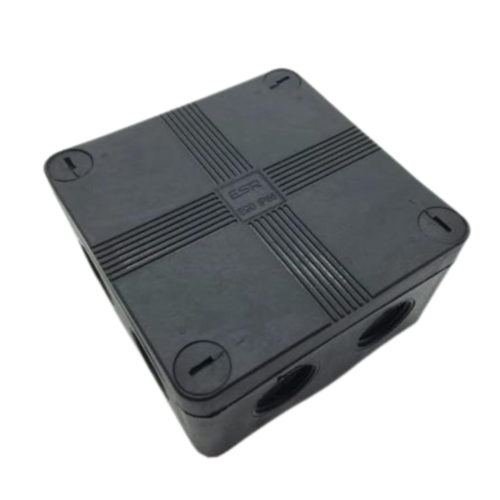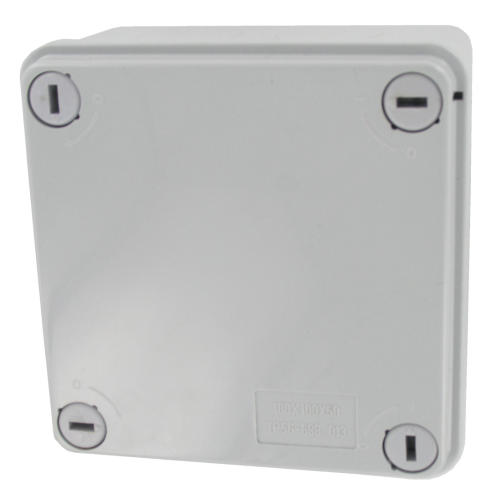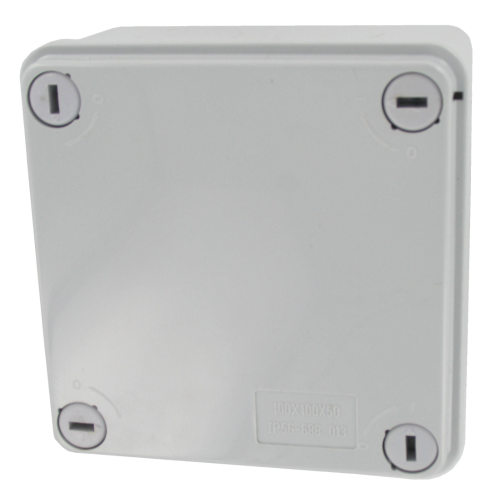Electrical Junction Boxes for Safe Connections
Junction boxes are one of the most integral components of any electrical system, it is a protective enclosure used to house electrical connections and keep them safe whilst also organised. Junction boxes shield wires from damage and prevent electrical hazards like short circuits, alongside this they also allow easy access for maintenance or modifications.
Here at Meteor electrical we can provide you junction boxes with a range of materials, shapes and sizes combined with a guarantee of up to 25 years. These junction boxes are designed with high quality materials ensuring long lasting reliability in any environment.
Get next day delivery if you shop our indoor and outdoor electrical junctions boxes from our online store in the cable management section!
What is a Junction Box?
A junction box is a crucial component of any electrical wiring system, used widely in homes and commercial buildings. It provides a safe and organised housing for electrical connections, ensuring both efficiency and safety. Also referred to as terminal boxes or J-boxes, these enclosures can be installed in walls, roofs, or concrete plaster.
Junction boxes are made from either plastic or metal and are designed to shield wiring from potential hazards such as dust, moisture, and physical damage. They also serve as a central meeting point where wires connect before being distributed to various outlets or fixtures throughout a building.
Why Are Junction Boxes Important?
Junction boxes play an essential role in electrical systems by protecting wiring from damage and ensuring the safety of circuits. They prevent electrical shocks, short circuits, and fire risks, while also keeping wiring systems neat and accessible. These enclosures provide easy access for inspection, repairs, and maintenance. In addition to safeguarding the wiring, they also protect people from accidental contact with live wires, ensuring the safety of everyone within the building.
Types of Junction Boxes
Junction boxes come in different shapes and sizes, designed for specific applications. Residential junction boxes are commonly used in homes and small businesses, housing simple circuits with neatly arranged wires to avoid overlaps. Outdoor junction boxes, on the other hand, are built with durable, weatherproof materials such as metal to withstand harsh weather conditions and protect against vandalism. These often include locks for added security.
Round pan junction boxes, which are shallow and rounded, are ideal for light fixtures on ceilings or walls. Meanwhile, octagon junction boxes are shaped to provide ample space for advanced wiring systems without occupying too much room. For outdoor applications, IP-rated junction boxes are highly recommended. These are specifically designed to resist moisture, dust, and physical damage. An example is the IP55 junction box, which offers excellent protection against heavy rain, dust, and accidental impact, making it ideal for harsh environments.
Common Configurations and Applications
Junction boxes are available in various configurations to suit different needs. A 3-way junction box is a versatile option that allows cables to branch in three different directions, making it ideal for wiring lights and appliances. Larger options, such as 5-way junction boxes, provide additional connections for more complex circuits.
Key Features to Consider
When choosing a junction box, it’s important to consider the material, amp rating, number of terminals, and whether it is weatherproof. Plastic junction boxes are lightweight, corrosion-resistant, and easy to install, while metal ones are stronger and suitable for heavy-duty applications. The amp rating is critical; for example, a 20-amp junction box is ideal for lighting circuits, while 30-amp and 40-amp options are more suited for high-power appliances like cookers or showers. For outdoor installations, weatherproof options such as black junction boxes with impact-resistant coatings are essential. For more information about junction box lighting circuits for outdoor applications, check out our blog!
How Junction Boxes Work
Junction boxes act as central hubs where electrical wires meet and connect. They contain live (brown), neutral (blue), and earth (green/yellow) wires, which are distributed to various fixtures or outlets. Typically, wires run from a main electrical panel to the junction box, where they are connected and spliced. All wire splicing must be done within the box to comply with safety regulations. Exposed splices are dangerous and can lead to sparks, fire, or accidental contact.
The Benefits of Junction Boxes
Junction boxes enhance the safety and durability of electrical systems by protecting wires from damage and reducing fire risks. They help to keep wiring systems organised, making them easier to maintain and repair. By safeguarding the wires from external elements such as dust, moisture, and pests, junction boxes significantly extend the lifespan of electrical circuits.
Why Choose Meteor Electrical?
Meteor Electrical offers a wide selection of high-quality junction boxes to meet all your wiring needs. From 3-way and 5-way junction boxes to weatherproof outdoor options and IP55-rated enclosures, our products are designed with durability, efficiency, and safety in mind. Shop our range today and find the perfect junction box for your project!

